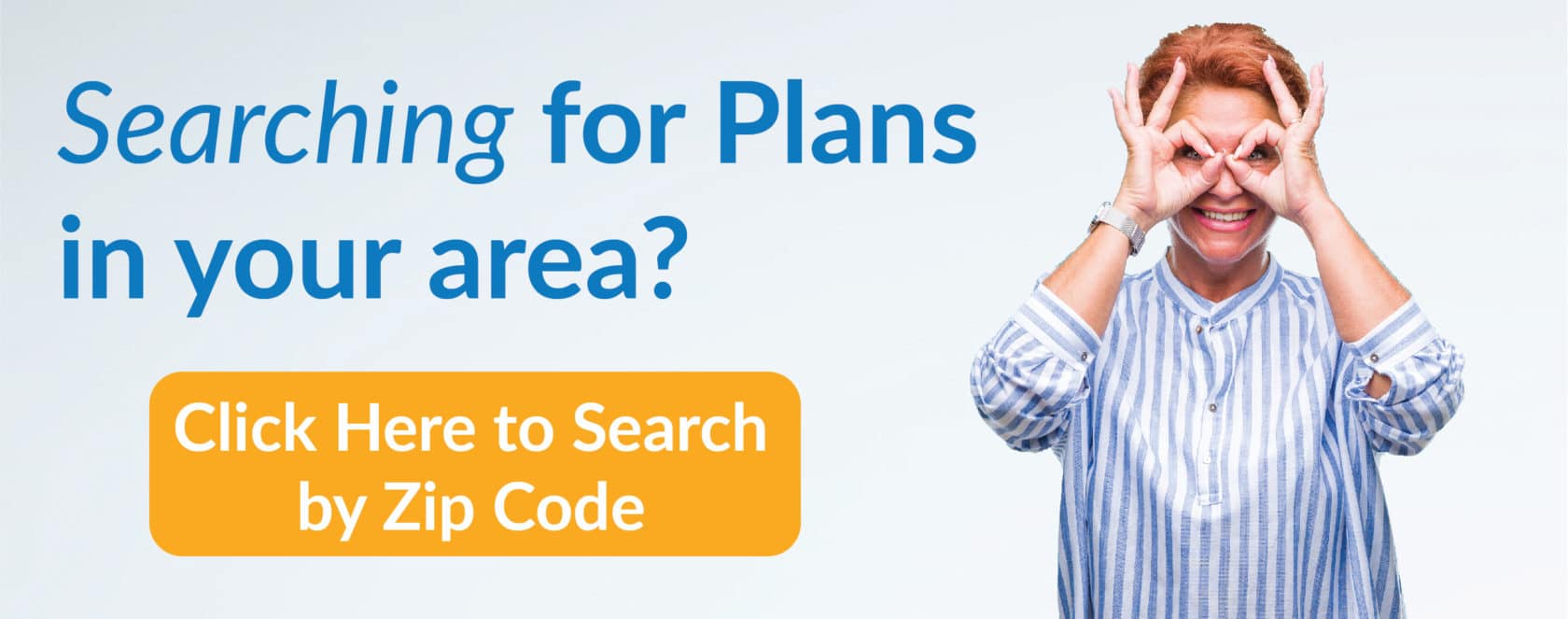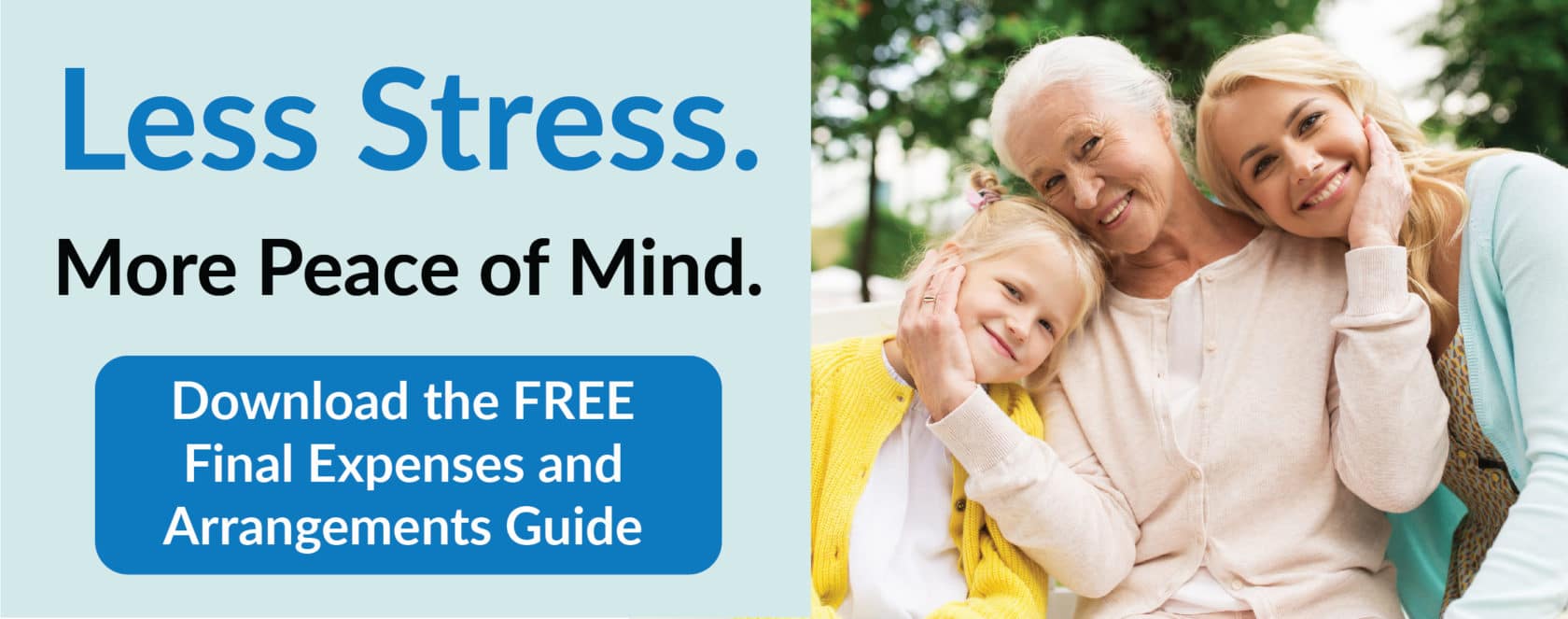Senior Caregiver Support Groups & Caring for Elderly Parents
If you are a professional caregiver or if you are currently caring for elderly parents, friends, or other relatives, this is your ultimate guide for finding Medicare beneficiary and senior caregiver support.

Medicare Education for Caregivers
Are you a caregiver for someone who is eligible for Medicare? If so, use our website navigation bar at the top of the page to read about different types of Medicare plans that may be able to help you or your loved ones.
Below, you’ll find information about some of the most commonly asked caregiver support questions and how to find the support you and your family needs.
Alzheimer’s Caregiver Support
Watching a loved one go through the stages of Alzheimer’s development can be difficult. It’s easy to put all your energy into caring for someone else and forget about yourself.
There are three stages of Alzheimer’s caregiving: Learning, supporting, and eventually, decision-making.
After a loved one first receives an Alzheimer’s Disease diagnosis, you’ll want to learn everything you can about how this disease affects mental health. Part of that learning process should be learning where you can get help to support your loved one.
Step one for many senior caregivers is to find a support group. That can mean a literal caregiver support group, it can mean a therapist or counselor, or it can mean frequently confiding in other family members.
If you don’t have someone to support you, how can you support someone else?
As the disease progresses, you’ll have to start supporting your loved one by coming up with financial, legal, and emotional plans. That means deciding what kind of insurance you and your family need during this time, completing legal documents like power of attorney forms so you can make medical decisions for the person, and finding the best doctors for you and your family’s needs.
Once you’ve established how you and your loved one are going to live with this diagnosis, you’ll need to think about secondary care providers. For yourself, you need to find respite care, meaning you need to find another family member, friend, volunteer, or hired caregiver that can look after your loved one when you need a break.
Alternatively, you should look for a facility where your loved one can live if you can no longer take care of them. Nobody wants to admit that it’s time to look at nursing home options, but in some cases, it’s the best way for both parties to live their healthiest lives.
This is also a good opportunity to research hospice services for end-of-life care.

In Home Caregivers for the Elderly and Disabled
If you have a friend or family member who is elderly and/or disabled but you yourself are unable to provide care, you can help them find a nurse or other in-home health care service to help them live comfortably at home.
Some people don’t need full-time assistance in a nursing home setting; all they need is someone to help them get dressed!
When choosing an in-home caregiver, be sure to check with your loved one’s health plan. It’s possible that they have a Medicare or Medicaid plan that covers home health services, nurses, and/or aides.

Caregiver vs Power of Attorney
Please note that even if you are a caregiver for a friend or relative, that does not mean you can make certain medical, legal, and financial decisions for them. To do so, you’ll need to become the person’s “power of attorney.”
To do that, you’ll need to apply. Keep these caveats in mind:
- If the person you want to become a power of attorney for is of a sound mind, that person must sign over those rights to you.
- If the person is mentally unstable but has already granted you power of attorney in a will, you are already the power of attorney and should not need to take other legal steps.
- If the person is mentally unstable and has not yet granted you power of attorney, you will need to go before a judge to get power of attorney rights.
While you can find these forms online, we recommend that you see a lawyer to be sure that your forms are accurate and correctly assign all the rights you need.
Compare Plans from All Carriers in 1 Minute!
Medication Management Systems
One of the most important things you can do for your sick family members is aid in medication management. As people age or as their health declines, it can become harder and harder to not only keep track of prescription drug usage but also to remember to take medications in the first place.
Unfortunately, you can’t always be there to remind your family members to take their medicine.
Your medication management system can be as simple as a pill box that allows you to prepare a week’s or a month’s worth of medication dosages in advance, or as complex as a digital alert system that sends a message to your loved one’s phone, watch, or another device to remind them that it’s time to take their pills.
You can even invest in an electronic pill dispenser that dispenses exactly the right pills only at the correct time.

Making Tough Choices in Senior Care
Making decisions about nursing home care, hospice, and life support is incredibly stressful. While we can’t provide personal advice, we can give you our best tips for selecting an assisted living facility and figuring out how to pay for it.
Choosing an Assisted Living Facility
One assisted living facility can be entirely different from another. Some offer limited services and more closely resemble retirement communities while others will help with everything from providing meals to bathing and dressing.
You should begin by looking into your or your family member’s health care coverage to see if certain facilities may be covered.
Your next step in choosing a facility for a loved one should be creating a list of every facility near you and then looking for reviews and recommendations.
Once you’ve figured out what your options are, make lists of all the benefits that each facility provides. Cross out the ones you don’t need, then look at the price differences.
Once you’ve narrowed down your choices, ask for any information the facility can provide like brochures, price lists, floor plans, resident rules, visitation, security, etc.
Be sure to tour a facility before you select it as your favorite option, as pictures and words often don’t show everything. Before you officially move your family member in, be sure to read through all contract provisions and even have a lawyer look everything over before signing.
Buying Life Insurance or Funeral Insurance for Parents
If your parents or other family members that you are caring for do not already have life insurance or final expense/funeral insurance, now may be a good time to bring it up.
Many of our licensed agents sell final expense policies, otherwise known as burial or funeral insurance. These plans can vary in value from anywhere from $5,000 to $50,000 and can cost you as little as $20 per month or as much as $80, depending on how much coverage you are looking for.
Coverage depends on what kind of funeral you want for yourself or your family members. It may not be an easy conversation to have, but you will have to think about funeral costs. Will you be responsible for a large funeral hall with catering, or do you only need coverage for a small ceremony?

Senior Caregivers and the Medicare Caregiver Program
Unfortunately, Medicare health insurance by itself does not cover private nursing or most home health services. However, there are other options for low-income Medicare beneficiaries.
You can invest in a long-term care plan that specifically provides coverage for home health or you can choose a Medicare Advantage plan that also includes these benefits.
Medicaid programs, however, do cover home health services. Some states even allow a care recipient to hire family members as primary caregivers.
That’s a great way for you to get paid for your caregiver services and allow you to truly spend the time you need to spend with your loved ones.
Disabled veterans in 37 states, D.C., and Puerto Rico can be allowed a budget (average of $2,500 per month) to spend as they wish on home health care.
Those who qualify for VA pensions and have served at least 90 days on active duty and at least one day during a time of war can get VA home care coverage through their pension program.
If you or your family member is a veteran, apply through your local Pension Management Center (PMC).
Family Caregiver Support Program
Congress created the National Family Caregiver Support Program (NFCSP) in November 2000 as a form of government assistance for caregivers of elderly parents.
The program provides caregiver resources for families, giving older adults living at home supplemental services that complement the care they are receiving from caregivers.
The NFCSP gives states and territories grants to fund support services that help family members and caregivers with the resources they need to take care of older adults living at home.
In addition, the Traditional Legal Assistance Program (TLAP) provides caregivers with guidance from an attorney.
Paying for Medicare and Healthcare Costs
Here is a breakdown of how Medicare covers various healthcare costs:
- Medicare Part A pays for a hospital stay. It pays a certain amount for any illness and you must pay a deductible first before it pays your hospital bill. The deductible for hospital insurance in 2020 is $1,408.
- Original Medicare pays for Hospice care. While you are at home, you may have to make a copayment of no more than $5.00 for each prescription drug you need for symptom relief or pain management.
- Medicare may pay for some adult daycare. This payment is based on your individual situation and the costs must relate to medical care.
- Original Medicare and Medicare Advantage will cover stay at a skilled nursing facility. It will pay for recovery from illness or injury if you need to stay for a limited time after staying in a hospital for at least 3 days. Medicare will not cover your stay for a chronic illness that will require long-term care.
- Medicare Advantage plans include supplemental services. These are services that you may need for in-home care costs.
Becoming a Medicaid Paid Caregiver
Can a family member get paid to be a caregiver? Yes, government assistance for caregivers of elderly parents is available.
To learn how to get paid to be a caregiver for parents, you’ll first have to have your family member apply for Medicaid (if they are not already enrolled).
As long as he or she qualifies for Medicaid, you can move forward. Contact your state’s Medicaid office. An official will explain how to get paid for being a family caregiver and how to apply for home health coverage.
You will need a list of required services. What does your family member need help with? Do they need a live-in caregiver, or just occasional help?
Once your state Medicaid program assesses your needs, they will establish a budget for your situation. You will have to stay within that budget to receive coverage.
Family caregiver pay rate depends on your state, and it can range from $9 an hour to $19.25 an hour. Social security caregiver pay is usually limited to about $27,756 per year.
Caring for Older Parents: Stress Relief and Caregiver Assistance
As a senior caregiver, especially if you are caring for elderly parents, you are likely to find yourself in stressful and upsetting situations. It can be hard to watch a person that you once looked to for strength and support reverse roles and start to lean on you.
With that comes a lot of stress, and not only is that harmful to you, but it makes your job as a senior caregiver even harder.
You can practice stress relief through aromatherapy, yoga, or doing things that make you happy, but one of the best ways to relieve the stress of being a caregiver is talking about it with people who understand.
Compare Plans from All Carriers in 1 Minute!
Finding Caregiver Support Groups Near You
As a caregiver, you are not alone. That’s why there are caregiver support groups throughout the country made up of people just like you who are caring for elderly parents or friends.
There are even caregiver support groups on Facebook where you can ask questions, get advice, and interact with other caregivers.
Here are two other resources you might find useful, too:
- The Eldercare Locator is a free national service offered by the Administration on Aging to provide caregivers and seniors that want to live independently in their communities a way to find necessary resources.
- Home Health Care Compare is a Medicare.gov search engine page to find a home health agency.
Family Caregiver Alliance
The Family Caregiver Alliance is a nonprofit organization founded in the late 1970s to provide support for those providing long-term care for friends and/or family members.
Within the Family Caregiver Alliance is the National Center on Caregiving, established in 2001. While the Alliance is more of an education source, the National Center on Caregiving works to make improvements in policies and programs for caregivers across the nation through research, training, alerts, and policy initiatives.
The Family Caregiver Alliance website offers a guide on where and how you can find caregiver support in your state. Just click on your state on the map to find phone numbers, locations, policies, etc.
You can also join the FCA Care Journey secure online service to have access to fact and tip sheets, videos, online classes, and more.
The National Family Caregivers Association & The Caregiver Action Network
The National Family Caregivers Association is now the Caregiver Action Network. The Caregiver Action Network (CAN) works out of Washington D.C. to provide support to caregivers for kids with special needs, wounded soldiers, parents with Alzheimer’s, etc.
Their Family Caregiver Toolbox provides information relevant to caring for people with specific illnesses, tips for caring for yourself while caring for someone else, different technologies that can help you, and even how to find a caregiver support group in your area.
The Ultimate Caring for Aging Parents Checklist

Our Caring for Aging Parents checklist gives you a spot to store all of your parent’s bank account, investment, and insurance information as well as all legal documents.
If your parents are unfortunately diagnosed with any sort of life-threatening or disabling disease, they may need your help sorting through legal and financial matters.
It will be easier for you if you’ve already seen all this information or at least know where to find it.
If your parents have Medicare or are nearing Medicare eligibility, we can ease your worries in that department. We are not an insurance company or the government – we work for you and your family.
We have licensed agents in 38 states who can meet with you or your parents and help them find the best solution for their health care needs. We have agents who are contracted with every major carrier to help eliminate bias.
To set up an appointment for you or your parents, call us at 844-431-1832. or they can submit this form.



